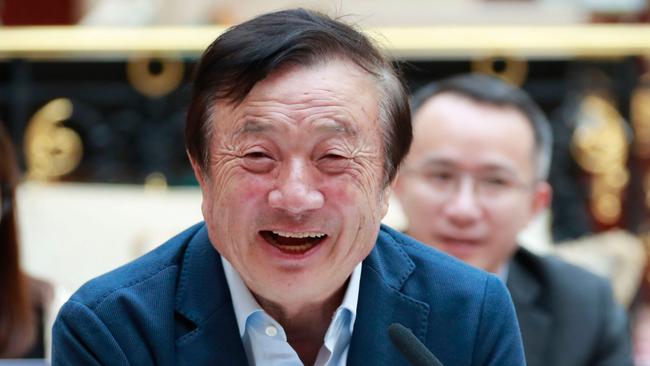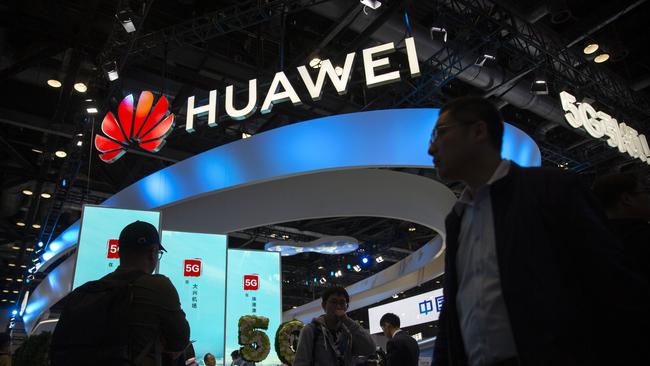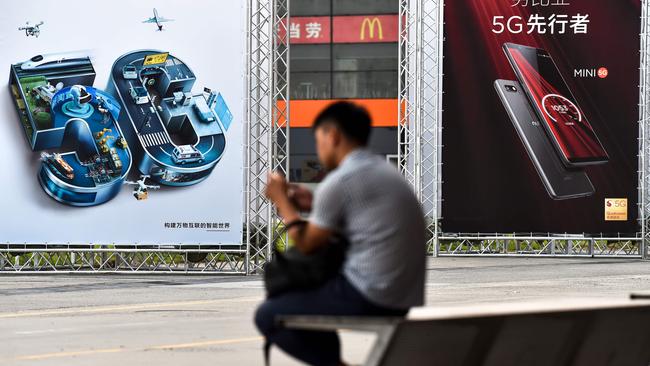Report alleges the Chinese Government fuelled Huawei’s rise to the top
The company has denied it has anything to do with the Chinese Government, but a new report alleges it’s received billions in assistance.

Innovation
Don't miss out on the headlines from Innovation. Followed categories will be added to My News.
A Chinese electronics company that denied having anything to do with the nation’s government after being banned from Australia’s next generation of mobile phone networks might have received a lot more help than they’re willing to admit.
Huawei was founded in 1987 by former People’s Liberation Army (PLA) military technologist Ren Zhengfei.
In the intervening 32 years, the company has grown to become the largest supplier of telecommunications equipment and the second largest manufacturer of smartphones after overtaking Apple earlier this year.
Samsung is the number one seller.

The company started life reverse engineering foreign technology while it built up the capability to develop its own.
Huawei eventually made a breakthrough with a new type of switch that was more powerful and cheaper than its rivals.
It was soon awarded a contract to build a national telecommunications network for Mr Zhengfei’s previous employer, the PLA.
Huawei received another boost in the mid-90s as the Chinese Government opted to promote domestic telecommunications companies against foreign rivals.
But that appears to be the tip of the iceberg in charting the assistance given to the company.
Over the years, Huawei reportedly received tens of billions of dollars in assistance from the Chinese Government, allowing it to undercut competitors and helping it become an industry leader, according to the Wall Street Journal.
The newspaper analysed grants, loans, tax breaks and other forms of financial assistance totalling around $US75 billion ($A108 billion).
Huawei reportedly received tax waivers beginning the same year the company was contracted to build the PLA’s communications network as well as around $US46 billion ($A66 billion) in loans and credit lines.
Huawei told the Journal it received “small and non-material” grants to support research efforts, and similar assistance was given to other companies as well.

The company declined to comment on a series of land transactions where it snapped up more than a dozen state-owned parcels of land for as little as 50 per cent of what they were worth.
The report also details how accusations of tax fraud swiftly went away when a government figure overseeing state-owned companies assembled an auditing team despite Huawei being a private company.
The Journal also noted similar subsidies given to companies in other countries were much lower, but this could be due to proportional wealth.
For instance, subsidies given to Huawei from the Chinese Government in the five years up to 2018 were claimed to be around 17 times the amount given by Finland to Nokia, the world’s second largest telecoms manufacturer.
But China’s GDP in 2013 was more than 34 times that of Finland’s, and that gap has increased even further.
In the five years to 2018, China’s GDP grew from $US9.6 trillion to $US13.4 trillion.
Finland’s only grew from $US270 billion to $US274 billion.
Its much smaller population means the GDP per capita remains higher, but the growth shows the Chinese Government has considerably more money it could offer in subsidies to industries and businesses in its own country.
China’s state-controlled banks reportedly gave Huawei and its customers cheap loans as well.
In another instance showing the dubious ties between the company and the Government, Huawei was awarded a contract to build a surveillance network in the Pakistan capital of Islamabad after a Chinese bank gave Pakistan a low-interest loan on the condition it hired Huawei.
The Journal cited a report from a Chinese embassy that said “the Chinese Government funded it and Huawei built it”.
China has been accused of engaging in “debt-trap diplomacy” (where excessive loans are given to countries who likely can’t service them with the intention of engendering political loyalty) on multiple occasions, particularly through its Belt and Road initiative.
That initiative also has the potential to rapidly accelerate economic growth in many developing regions, which would benefit both China and the nations where it invests.
NO WAY ON HUAWEI
The Australian Government announced it would prohibit Huawei from taking part in the construction of 5G mobile networks in August last year, citing national security risks.
Huawei quickly branded that decision a politically motivated one and warned excluding the company from 5G would leave Australia with networks that cost more and weren’t as good as ones using Huawei technology.

One concern is that the company or others could be forced by the Chinese Government to install backdoors, provide data, or otherwise allow them to spy on the network, which Huawei said it couldn’t and wouldn’t do.
Huawei already played a significant role in constructing the 4G network and said there was no fundamental difference with a 5G network, aside from the newer technology being more secure.
But one of Australia’s top spies expressed concern that the high level of integration expected in 5G could pose more significant risks to national infrastructure rather than just user privacy.
Following a speech at the Lowy Institute earlier this year, then director-general of the Australian Signals Directorate Mike Burgess told the Financial Times “government agencies do care about the privacy of communications but that is not our concern on 5G”, pointing to the potential risk of a foreign country being able to disrupt key pieces of infrastructure such as the power grid if they were reliant on 5G.
Mr Burgess was recently promoted to director-general of ASIO.
Should Huawei be allowed to construct 5G networks in Australia? Let us know what you think in the comments below.
Originally published as Report alleges the Chinese Government fuelled Huawei’s rise to the top


